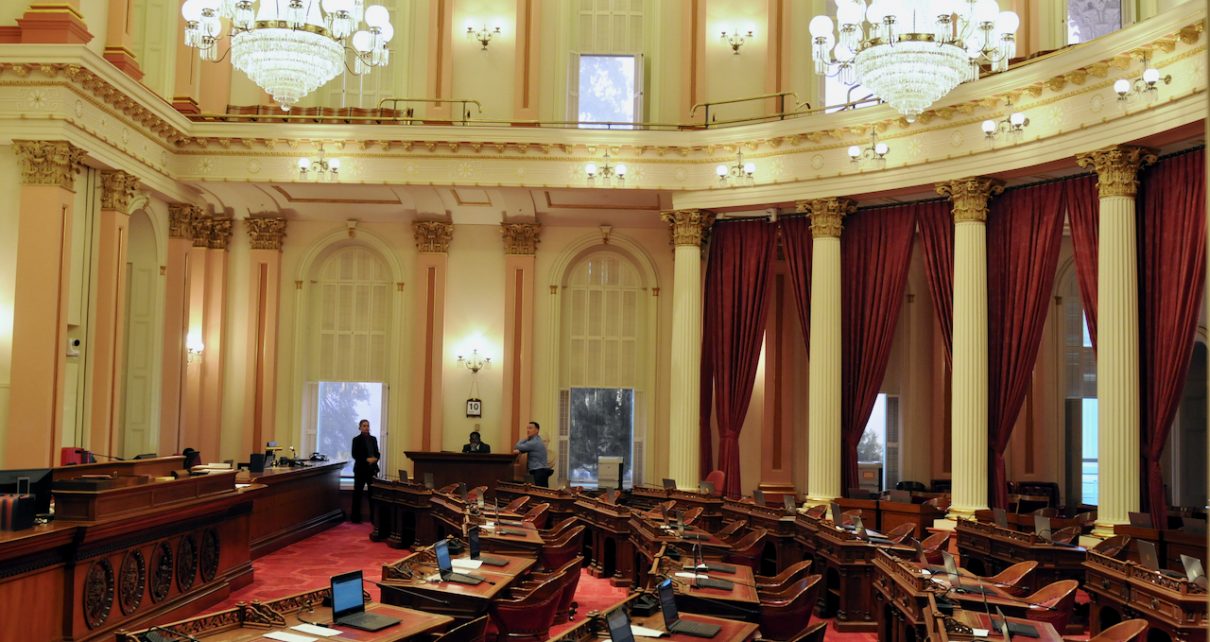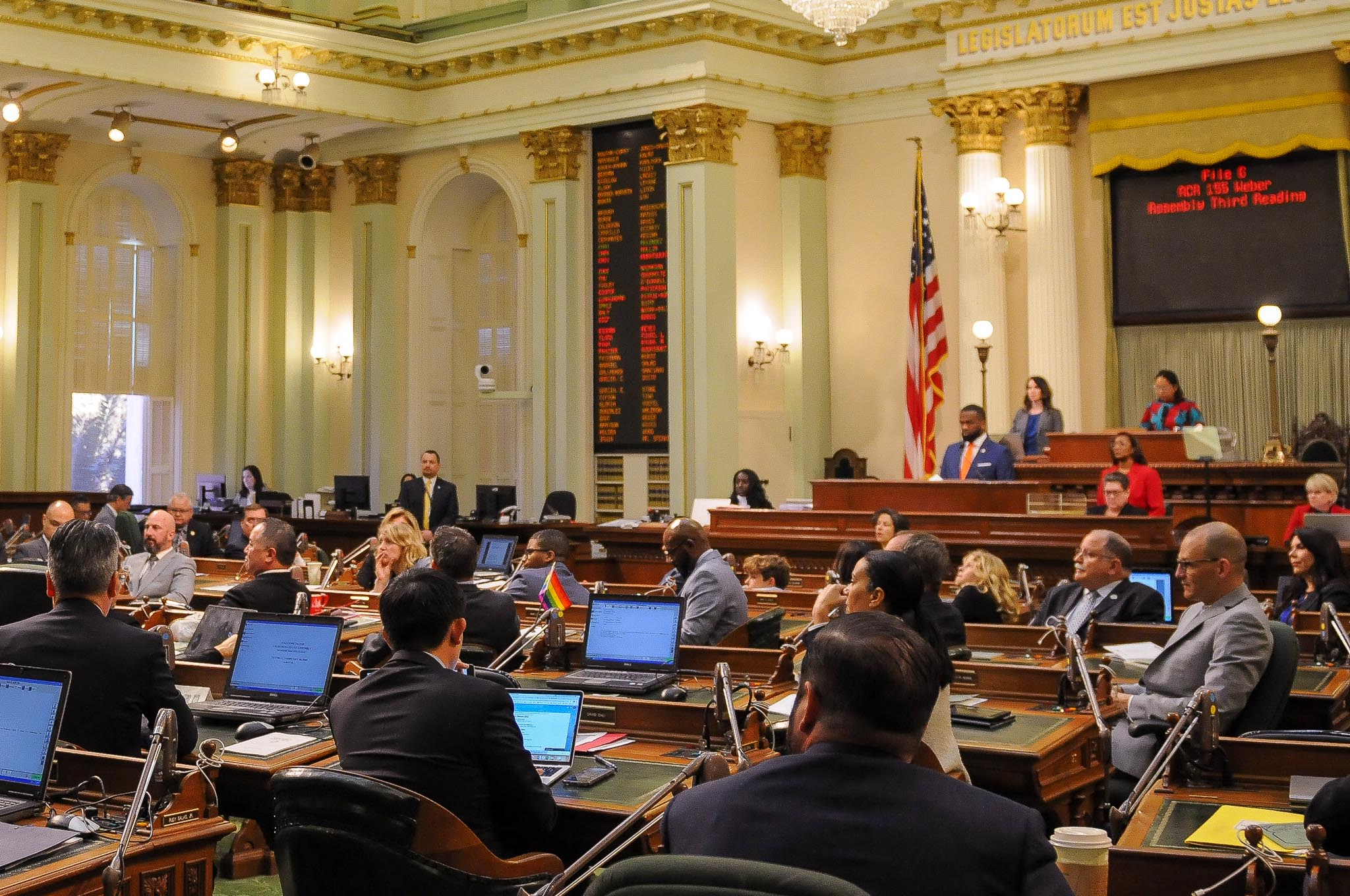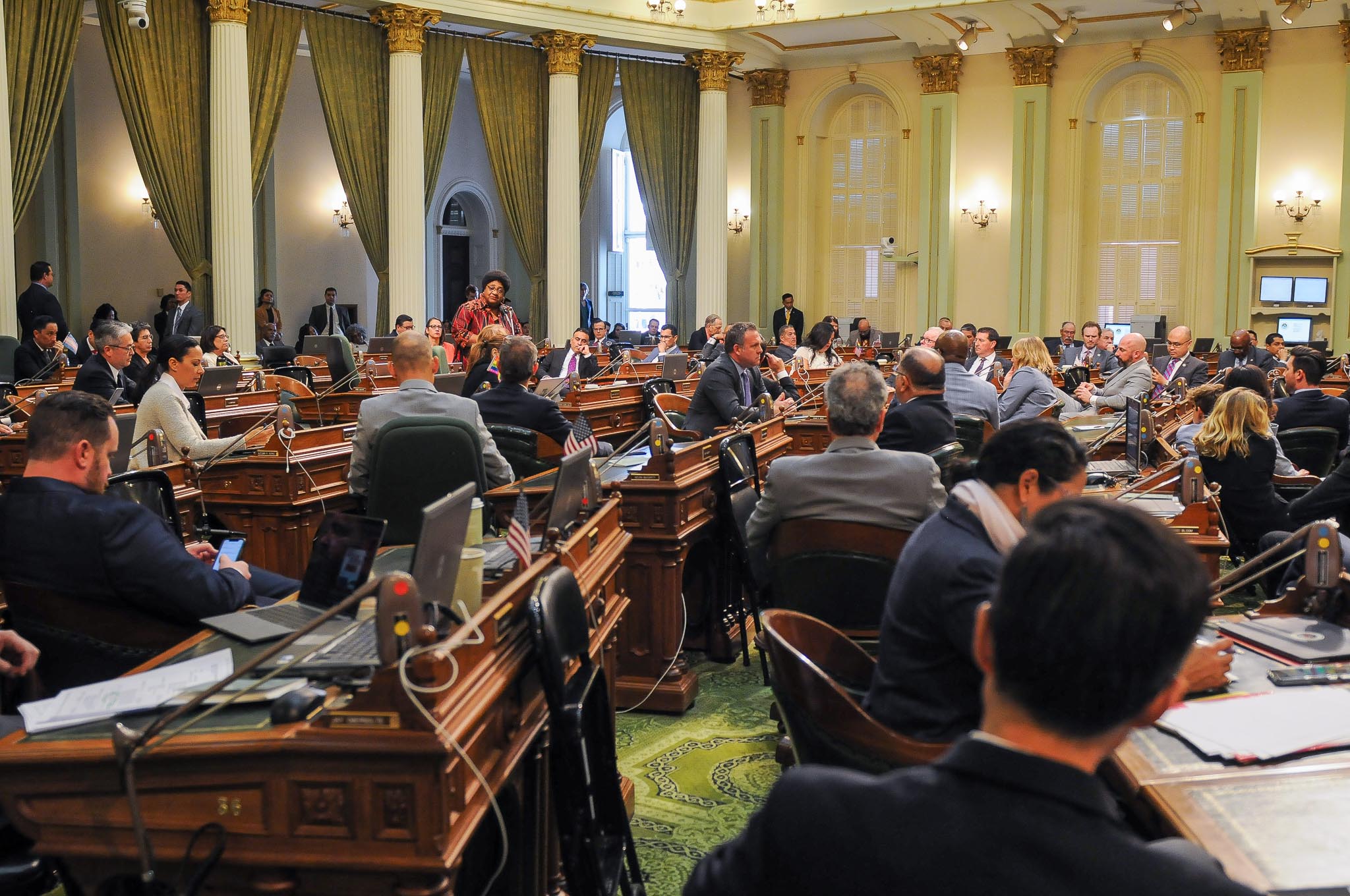
California Senate Chambers. (Photo: Kevin Sanders for California Globe)
Presumptions in California Legislation
A conclusion that is drawn based upon specified facts until the fact has been rebutted
By Chris Micheli, April 19, 2022 10:48 am
There are a handful of bills each year in the California Legislature that create a “presumption” in state law.
What is a “presumption?”
Basically, a presumption in law is a conclusion that is drawn based upon specified facts until the fact has been rebutted. With a presumption, a party does not have to actually prove the fact that is being presumed. Instead, the burden shifts to the other party to disprove the fact (or rebut) it. There can also be different standards required to rebut the presumption.
The following are examples drawn from recent legislation that readers might see in California bills (note the two different standards of evidence in the first and third examples):
This subdivision creates a presumption affecting the burden of producing evidence and may be rebutted by clear and convincing evidence showing ____.
This presumption is disputable and may be controverted by other evidence, but unless so controverted, the ____ is bound to find in accordance with it.
This presumption may only be rebutted by a preponderance of the evidence. To overcome the presumption set forth in subdivision (a), the court shall find that ____.
Notwithstanding any other law, there shall be a presumption that the disclosure of information relating to a covered civil action shall not ____.
Presumptions can also be used in criminal laws (i.e., California’s Penal Code). The following is an example:
____ creates a presumption of insufficient mens rea to accomplish the offense.
On the other hand, a presumption can be prohibited from being used in the criminal context:
This presumption is a presumption affecting the burden of proof, but it does not apply in a criminal action.
In some statutes, the Legislature determines what type of evidence is or is not sufficient to overcome a presumption:
A written declaration or testimony from a ____ is not sufficient to rebut the presumption of liability of the respective parties.
What happens when the other party rebuts the presumption? That can be addressed in statute, or not. The following is an example of what a court must do:
If a court finds the presumption is rebutted, it shall provide its reasons on the record.
In all of these examples, there is a particular reason why the Legislature has chosen to create a statutory, or legal, presumption. That presumption benefits one party and places a greater burden on the other party to overcome the presumption. In some statutes, the Legislature has designated the standard of evidence that the party attempting to overcome the presumption must meet.
And, as readers have seen, these presumptions can be used in both the civil and criminal law contexts.
- Mergers of Unincorporated Associations - February 21, 2026
- A Historic Look at Bill Introductions in the California Legislature - February 21, 2026
- Construction of Eminent Domain Law - February 21, 2026




